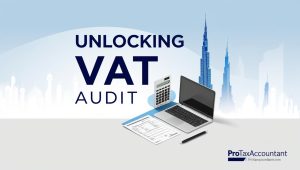UAE Corporate Tax Calculator
DISCLAIMER: The results are for illustrative purposes only. Consult a tax advisor for accurate information.
How to Calculate UAE Corporate Tax:
The UAE is known for its business-friendly environment, offering a tax haven for entrepreneurs and multinational corporations.
However, with the introduction of the Corporate Tax (CT), businesses need to gear up for compliance while ensuring accurate financial planning.
If you’re wondering how to calculate UAE Corporate Tax or need to understand its nuances, this guide will take you through every detail, including rates, adjustments, and practical examples.
By the end of this blog, you’ll have a clear roadmap to assess your taxable income and determine your corporate tax liability in the UAE.
What is UAE corporate tax?
Corporate tax is a direct tax on the net profit or income of a business.
In the UAE, corporate tax is being implemented to align with global tax standards, increase transparency, and diversify the economy.
Key Highlights of UAE Corporate Tax
Flat Tax Rate: 0% on income up to AED 375,000 and 9% on income exceeding AED 375,000.
For Multinationals: Large multinationals under the OECD Pillar Two framework with revenue above €750 million may be taxed at 15%.
Effective Date: Applies to financial years starting on or after June 1, 2023.
Why Corporate Tax is Introduced in the UAE
The UAE has long been a “tax haven” for entrepreneurs and global corporations.
However, to meet international transparency standards and combat base erosion and profit shifting (BEPS), the government has introduced corporate tax.
The framework aims to:
- Increase fiscal transparency.
- Attract and retain global businesses with competitive tax rates.
- Ensure compliance with global tax initiatives like OECD.
Despite the new tax regime, the UAE remains one of the most business-friendly environments globally, with its low rates and numerous exemptions.
How to Calculate UAE Corporate Tax
Calculating corporate tax in the UAE is straightforward but requires precision. Follow these steps:
Step 1: Prepare Your Financial Statements
To calculate taxable income, your financial statements must comply with International Financial Reporting Standards (IFRS) or an equivalent accounting standard approved in the UAE.
This ensures accurate documentation of income, expenses, and profits.
Step 2: Determine Your Taxable Income
Taxable income is derived from your net profit (as shown in your financial statements) with adjustments for:
- Non-deductible expenses.
- Tax-exempt income.
- Certain disallowed deductions or recoveries.
Step 3: Apply the Tax Rates
If Net Profit ≤ AED 375,000:
No corporate tax is applied (0%).
If Net Profit > AED 375,000:
Tax is calculated at 9% on the amount exceeding AED 375,000.
For Large Multinationals:
Tax is levied at 15% if applicable under OECD regulations.
Example of UAE Corporate Tax Calculation
Let’s say your business earns AED 475,000 in taxable income.
Here’s how you calculate the tax:
Taxable Income = AED 475,000
Exempted Amount = AED 375,000
Taxable Portion = AED 475,000 – AED 375,000 = AED 100,000
Corporate Tax = AED 100,000 × 9% = AED 9,000
If your income exceeds AED 375,000, only the excess is taxed at 9%, making the process highly efficient for small businesses.
Adjustments to Taxable Income
The Federal Tax Authority (FTA) mandates businesses to adjust accounting profits to calculate taxable income accurately.
This involves:
Exempted Income
Certain incomes are exempt from corporate tax, such as:
- Capital Gains: Unrealized gains on capital investments.
- Dividends: Received from qualifying UAE or foreign subsidiaries.
- Income from Free Zones: Subject to specific conditions.
Non-Deductible Expenses
Certain expenses cannot be deducted for corporate tax purposes, such as:
- Customer Entertainment: Only 50% of business entertainment expenses are allowed.
- Non-Business Donations: Contributions to unapproved charities.
- Recoverable VAT: amounts refunded under VAT regulations.
- Penalties: Official fines or penalties.
Partially Deductible Expenses
Expenses partially related to exempted income (e.g., administrative costs for managing tax-free investments) are disallowed.
Key Tips to Ensure Accurate Tax Calculation
Automate Accounting: Use accounting software that complies with UAE tax standards to streamline calculations and avoid errors.
Keep Detailed Records: Maintain accurate records of all transactions, including invoices, receipts, and bank statements.
Work with Tax Advisors: Hire certified auditors or tax consultants to ensure compliance and identify potential exemptions or reliefs.
Stay Updated on Regulations: The FTA regularly updates tax policies, so ensure you stay informed to avoid penalties.
Common Mistakes to Avoid When Calculating Corporate Tax
Neglecting Exemptions: Not claiming eligible exemptions can lead to overpayment.
Incorrect Adjustments: Failing to adjust for disallowed expenses or taxable income leads to miscalculation.
Late Filing: Missing deadlines can attract significant penalties, starting from AED 10,000.
FAQs About UAE Corporate Tax
1. Who is subject to UAE corporate tax?
All UAE-based businesses except those engaged in the extraction of natural resources (taxed separately) or specific government entities.
2. Are free zone companies exempt from corporate tax?
Yes, free zone companies can benefit from a 0% tax rate if they comply with conditions such as not conducting business with mainland UAE.
3. How is taxable income calculated?
Taxable income is your net profit after accounting for adjustments, such as disallowed expenses and exempted income.
4. When is corporate tax due?
Corporate tax is filed annually, based on your financial year.
For most businesses, this means a filing deadline of June 30, 2024, for the financial year ending December 31, 2023.
How Can Pro Tax Accountant Help You?
Calculating UAE corporate tax can be challenging without expert guidance.
Our experienced tax advisors and certified auditors specialize in preparing financial statements, implementing corporate Tax strategies, and ensuring compliance.
From understanding exemptions to adjusting non-deductible expenses, we help you compute your taxable income precisely and minimize your tax liability.
Conclusion: Get Corporate Tax Ready
Understanding how to calculate UAE corporate tax is essential for every business operating in the region.
While the process may seem complex, it boils down to accurately assessing your taxable income, applying the correct rates, and making necessary adjustments.
Your Next Steps:
- Prepare your financial statements as per IFRS.
- Identify exempted income and disallowed expenses.
- Work with a tax consultant to maximize your deductions and exemptions.
With the right approach, you can navigate the UAE’s Corporate Tax regime confidently and focus on growing your business.
Need Help with Corporate Tax?
Contact us today to ensure compliance and save on taxes.



















